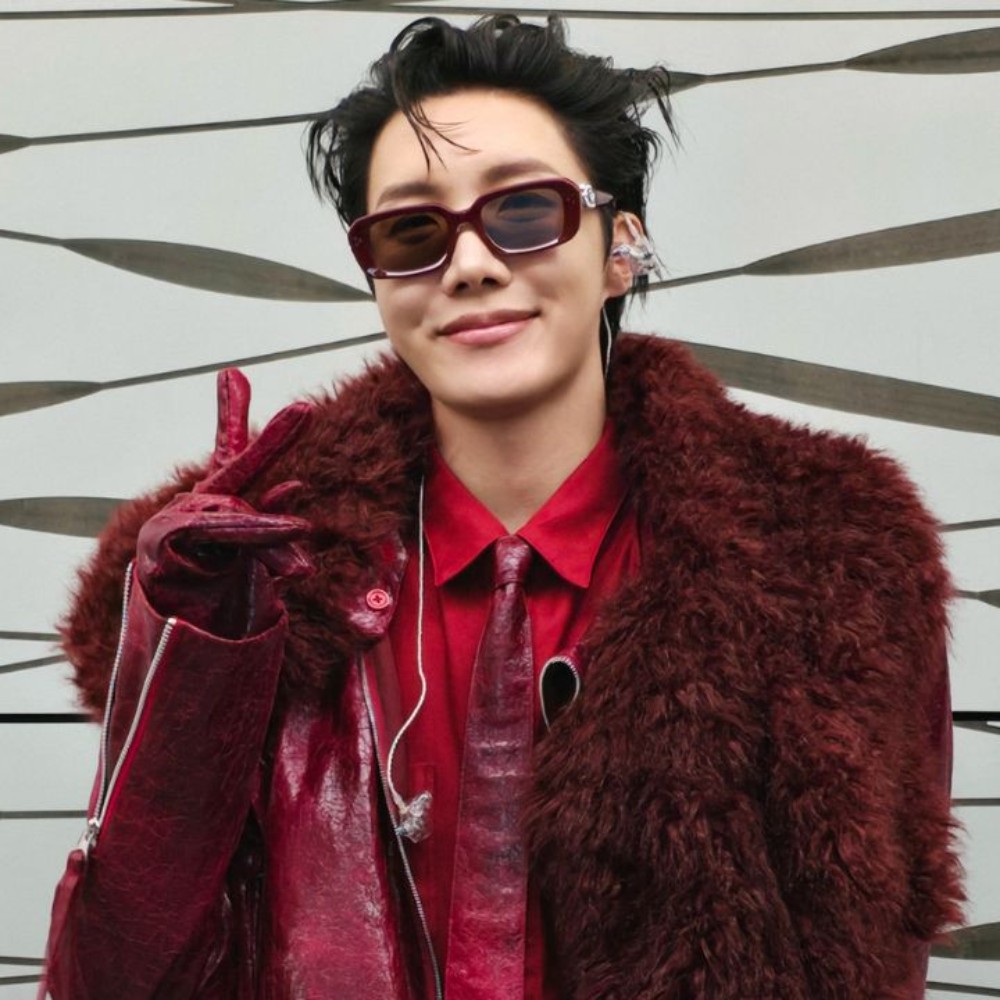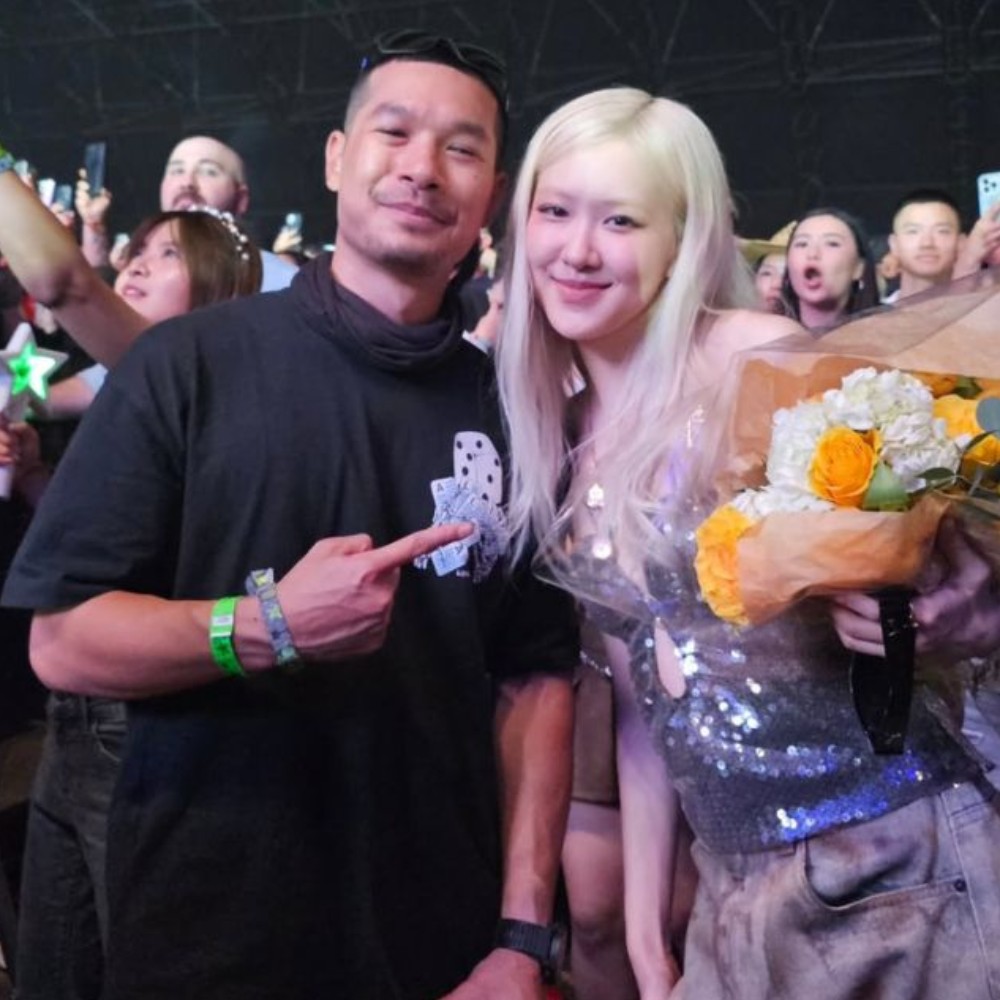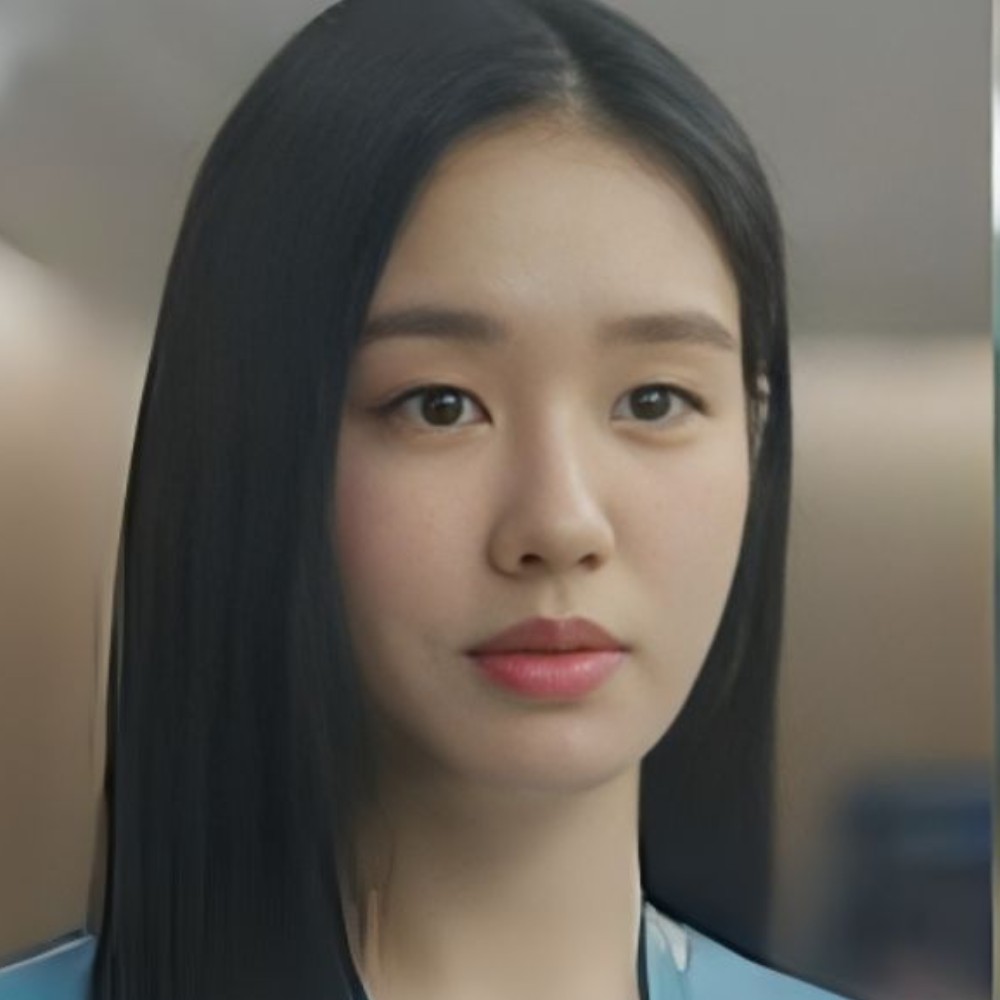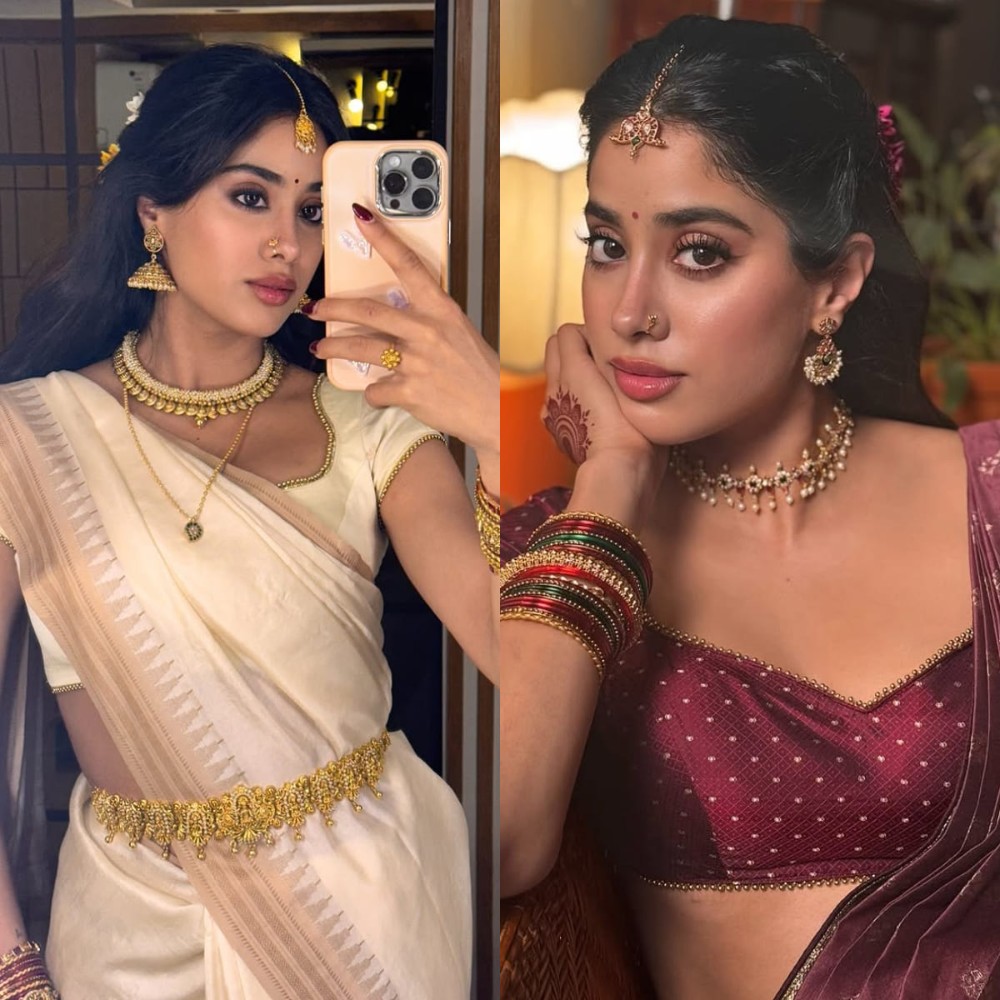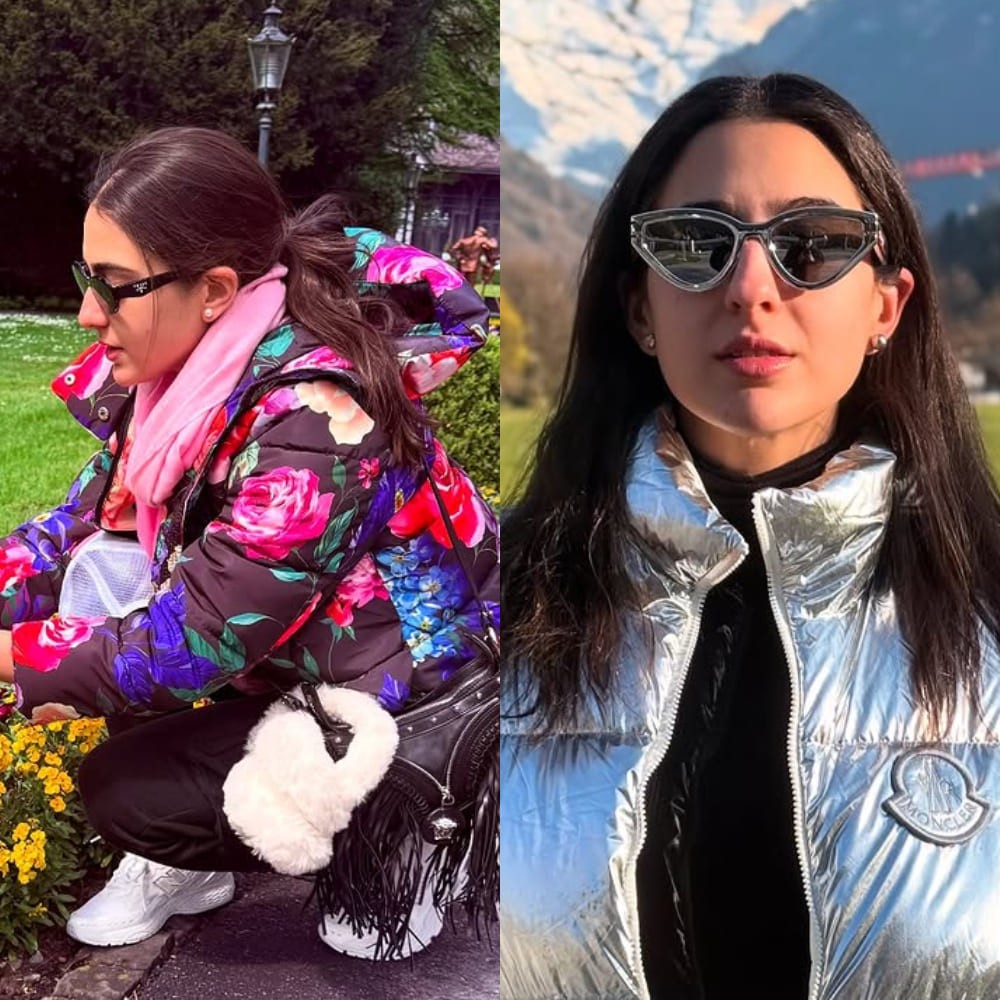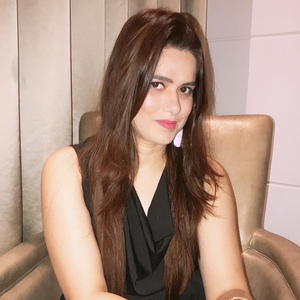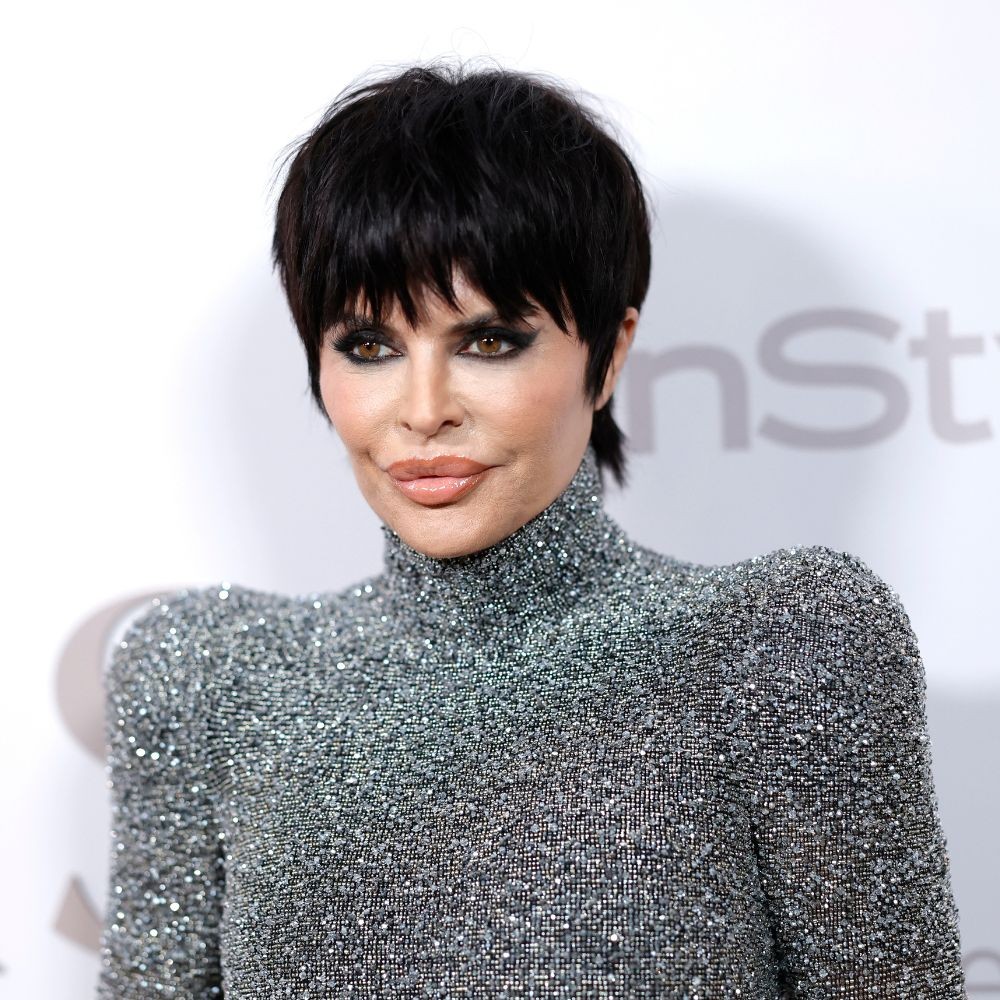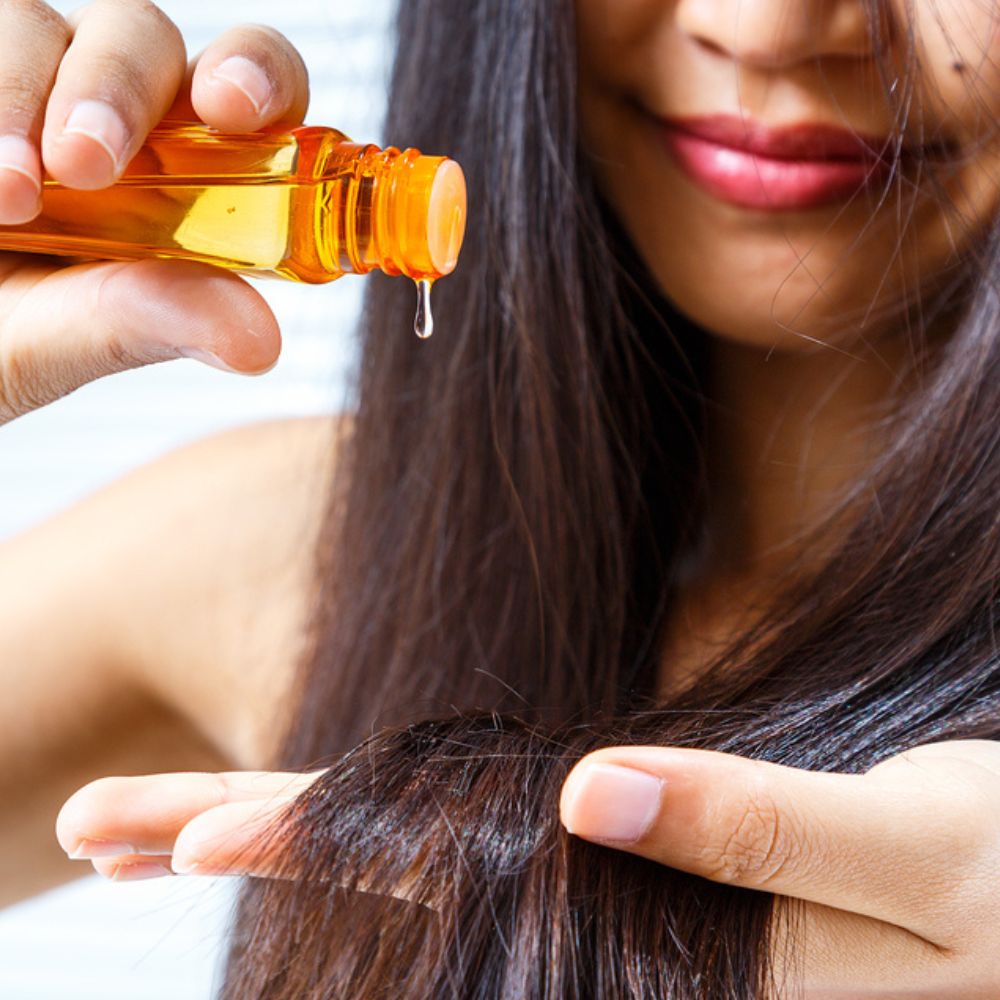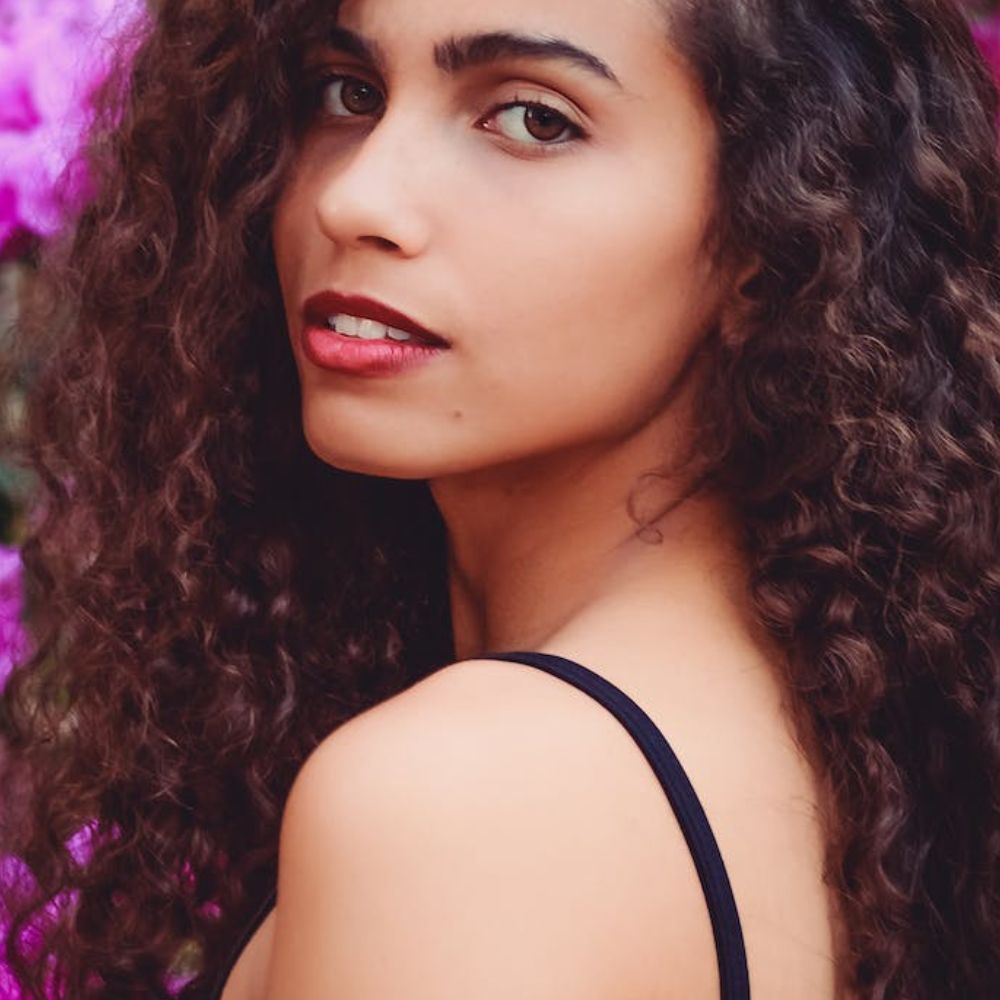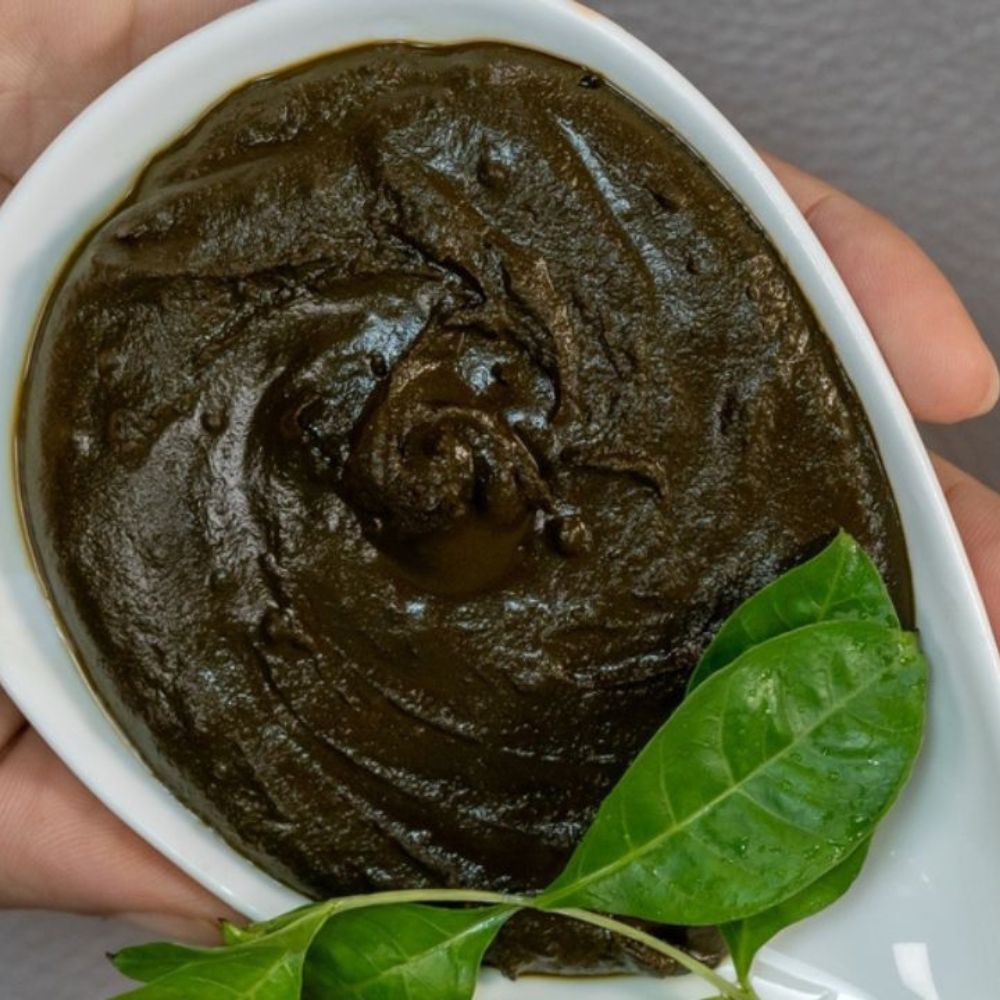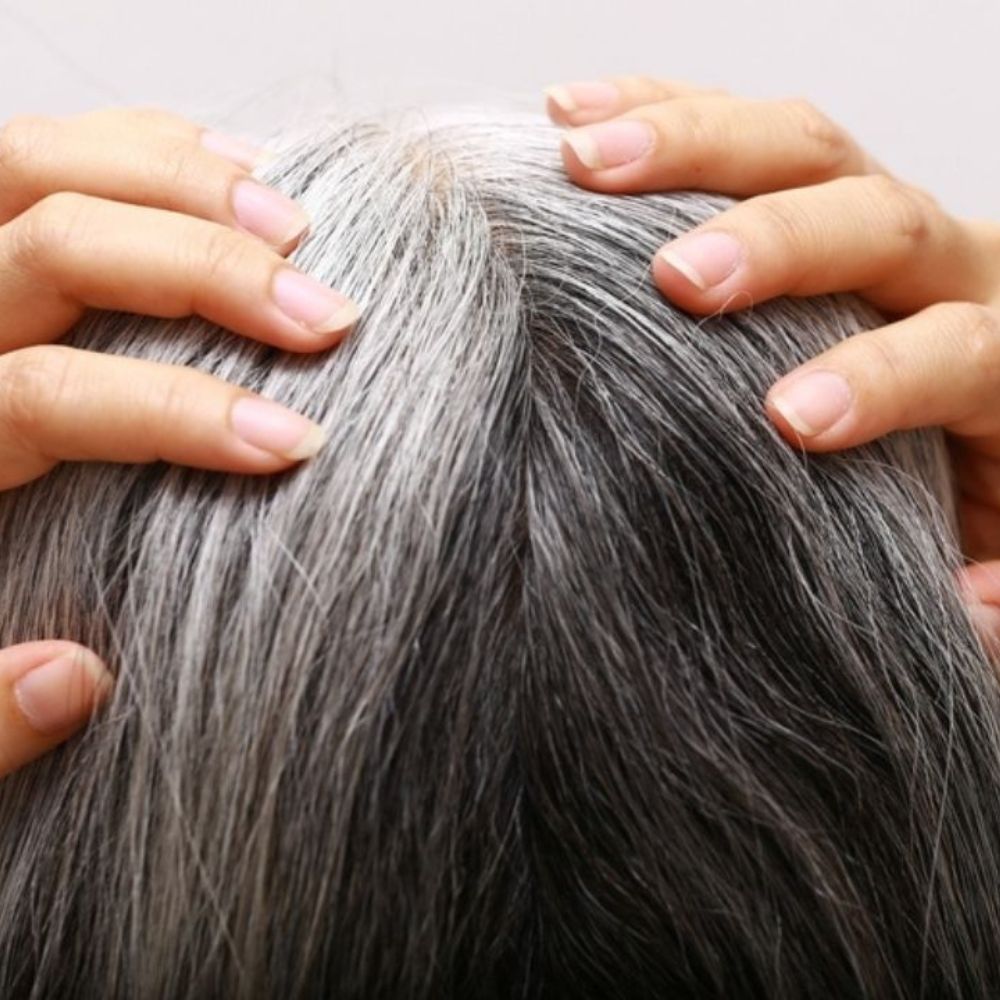Ginger for Hair Growth: Benefits And Ways to Use
Explore the remarkable benefits of using ginger for hair growth. Learn about its properties, recipes, and preventive measures that will benefit your overall hair health.
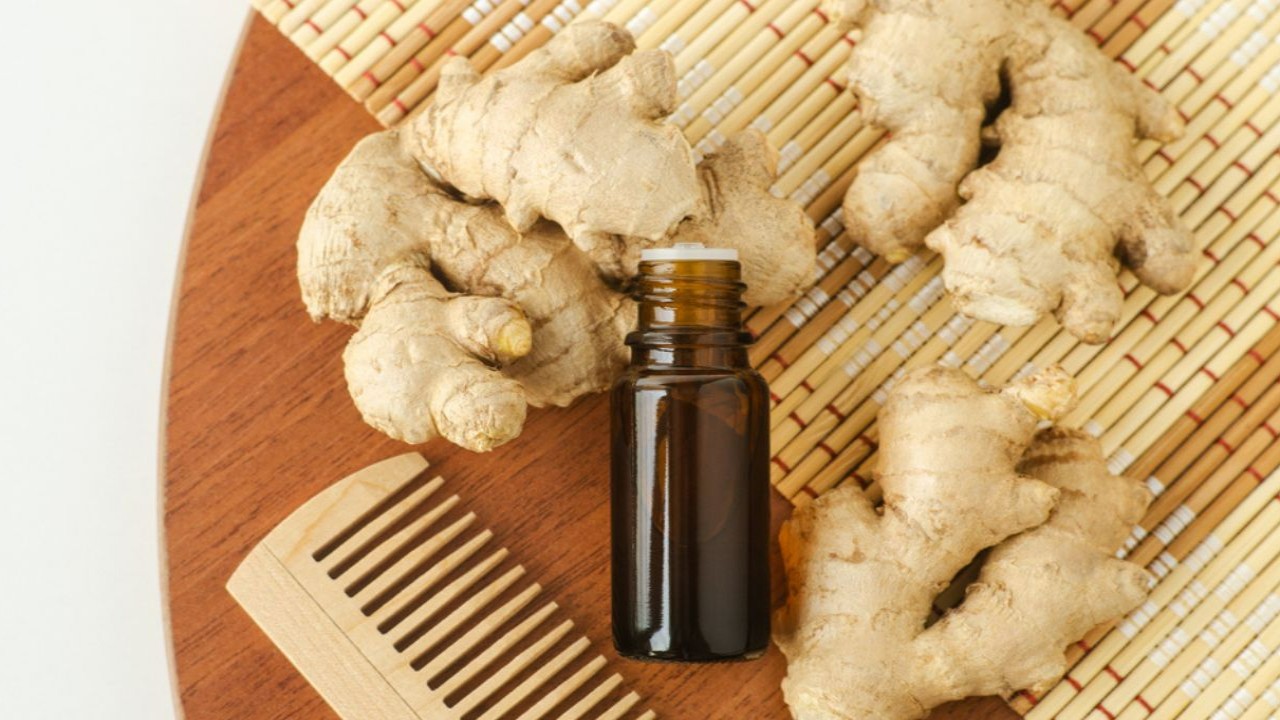
Ginger is a famous and mighty spice whose roots were cultivated 5000 years ago in India and China (1). They used it to achieve many health benefits, such as relieving colds, coughs, and congestion and boosting immunity, digestion, etc., but here we will discuss the benefits of ginger for hair growth. Although social media is full of popular “hair hacks” that claim ginger to be quite effective in stopping hair fall, after conducting our comprehensive research, we hardly found any literature backing this exact claim.
However, ginger is an excellent storehouse of active compounds and potent antioxidants. These compounds have potential anti-inflammatory, anti-fungal, and anti-bacterial properties, as well as oxidative stress-reducing abilities. Therefore, the benefits of ginger in alleviating scalp issues and protecting hair may further improve hair growth. So, let us discuss more on how ginger may enhance the appearance, structure, and strength of your beautiful, luscious tresses, along with a few simple recipes to incorporate it into your routine that can be easily made at home.
Can Ginger Induce Hair Growth?

For centuries, ginger has been an important medical plant cultivated in Eastern parts of Asia. One of the commonly known uses of the root tonic was to promote hair growth and overall hair health. However, a group of researchers who performed laboratory tests on these claims could find no scientific evidence to infer that it could help treat serious hair fall issues like post-radio or chemotherapy, alopecia, and other health-related baldness (2).
According to Dr Sravya, a Chief Consultant Dermatologist & Cosmetologist, "There is limited research on the same, but some studies suggest that ginger stimulates scalp circulation, which promotes growth, though more research is needed on the same.”
However, there have been innumerable studies that back its anti-inflammatory and antimicrobial properties which may indirectly allow for improved hair growth by treating scalp conditions like infections, buildup, dandruff, etc (2).
Although these correlations are purely anecdotal and no literature has established these correlations, ginger does offer some benefits for hair and scalp health. Nonetheless, since ginger is only a natural remedy in clinical hair conditions, it is highly advisable to seek professional help and undergo traditional treatment procedures if you are experiencing severe hair fall.
Amazing Benefits of Using Ginger for Hair Growth
Ginger, scientifically known as Zingiber officinale, contains a surprising amount of essential vitamins like C, B6, and E, along with minerals like zinc, magnesium, potassium, phosphorus, and calcium. Additionally, it contains a primary active ingredient, 6-gingerol, which altogether offers this unique spice its medicinal properties (3). All these combined may help improve overall hair health. Below are some benefits that ginger may offer for our hair:
1. May Help Treat Dandruff
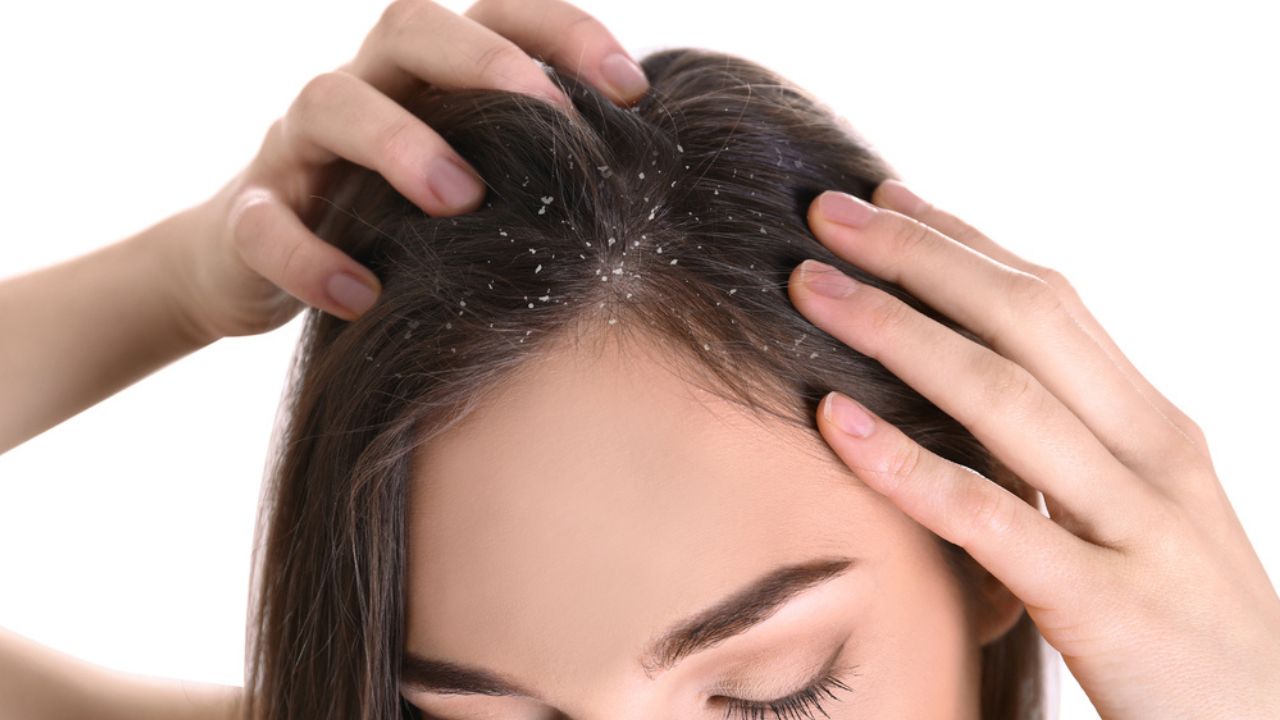
The 6-gingerol compound and other polyphenols present in ginger have antibacterial and antifungal properties, which may lead to a healthy scalp. These have been proven to combat a broad spectrum of microorganisms (4). Therefore, these properties may also be useful in preventing dandruff and its associated symptoms like itchiness and flakiness of the scalp, which retard the process of hair growth (5).
2. May Help Strengthen Hair
Ginger can strengthen hair from the roots, making it less prone to breakage and promoting thick and healthy hair. A study done on ginger’s antioxidant properties proves that it significantly neutralizes oxidative stress-inducing molecules. Moreover, 6-gingerol has been shown to actively scavenge excessive NO (nitric oxide) molecules that may cause low blood pressure (6). Thus, it may help in improving blood flow in the scalp and combating oxidative stress, leading to stronger hair that is from environmental and internal damage.
3. May Help Boost Hair Health
The anti-inflammatory effects of ginger can help soothe and calm an irritated or inflamed scalp (7). Moreover, with increased blood circulation, the scalp will receive a better nutrient supply of essential nutrients like zinc, phosphorus, magnesium, etc., which will enhance the overall health of hair follicles and may also promote growth (8). Additionally, with enhanced blood circulation, there will be better breathability, which can further help prevent infections and oiliness and offer healthy follicular stimulation (9).
4. May Help Condition Hair
Regular use of ginger in hair care routine as a DIY hair conditioner can result in softer, smoother, and shinier hair. Owing to its rich composition of essential fatty acids, vitamins, and minerals. It can help repair damaged hair cuticles and contribute to restoring moisture loss.
How to Use Ginger for Hair the Right Way?

After discussing the wonderful benefits ginger may offer to your hair, let us now explore the different ways it can be incorporated into your haircare routine to achieve the same benefits. Since ginger is packed with several active ingredients, it may not suit all skin and hair types, so to minimize the risk of these side effects, it's advisable to:
- Perform a patch test by applying a small amount of diluted ginger preparation on a small area of your skin and wait for 24-48 hours to see if there are any adverse reactions.
- Dilute ginger by mixing ginger juice or extract with a carrier hair oil or other natural ingredients to reduce its potency and potential for irritation.
- Avoid using ginger on broken or sensitive skin.
- Discontinue use if you experience any adverse reactions.
Best Ways to Use Ginger for Hair Growth
Here are some ways to use ginger for your hair:
1. Ginger Hair Mask
Instructions:
- Grate or blend fresh ginger to extract its juice.
- Mix the ginger juice with equal parts of carrier oil, such as coconut oil, olive oil, or jojoba oil. The carrier oil helps dilute the potent ginger juice to prevent irritation on the scalp.
- Apply the mixture to your scalp and hair, massaging it gently.
- Leave it on for 30 minutes to an hour, and then wash it out with a mild shampoo.
- Use this hair mask once or twice a week to promote hair growth and improve scalp health.
2. Ginger And Honey Hair Mask for Dandruff
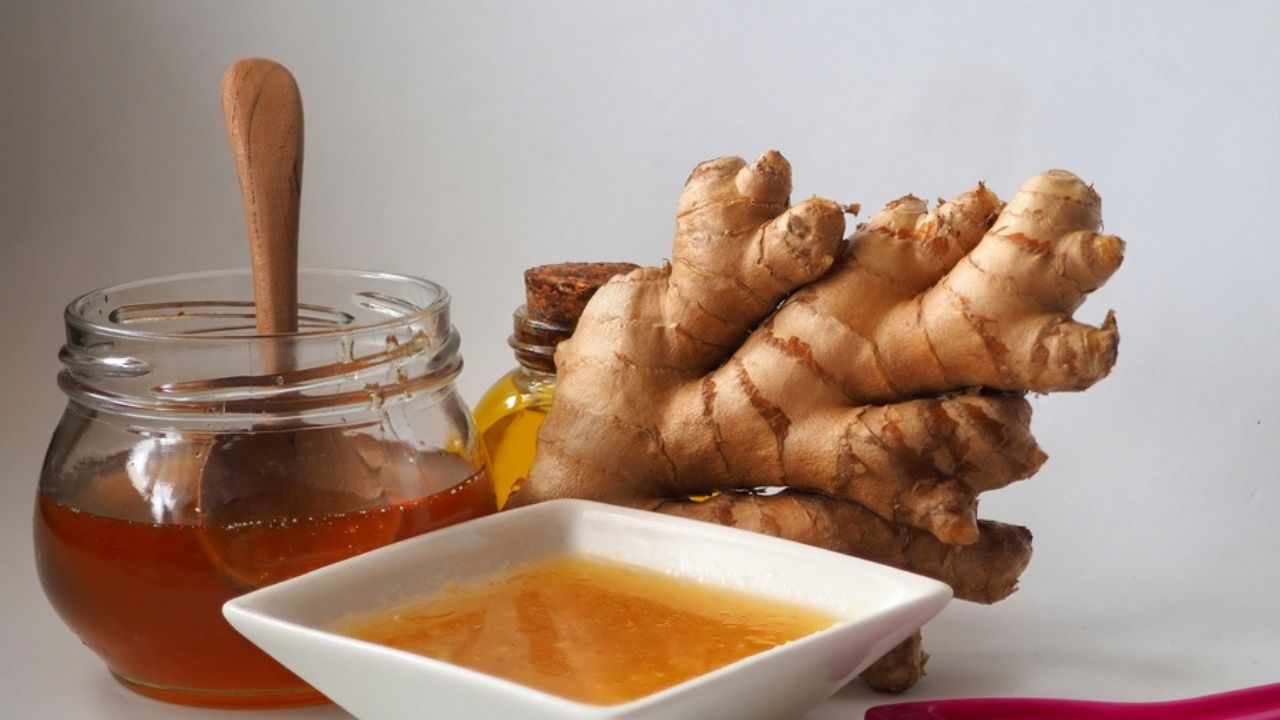
Along with ginger, honey also has antiseptic properties, which may combat fungal and bacterial infections that cause dandruff. Moreover, it also helps add and restore moisture to the scalp, which helps prevent flaking and dryness (9).
Instructions:
- Mix half a cup of grated ginger with a tablespoon of honey to form a paste.
- Apply the paste to your scalp and leave it on for about 30 minutes.
- Rinse it out with a mild shampoo.
- This can help combat dandruff and soothe an itchy scalp.
3. Ginger and Aloe Vera Hair Mask for Hair Growth
Aloe vera has moisturizing, nourishing as well and antimicrobial properties, which not only strengthen hair cuticles but also prevent infections, dryness, or buildup on the scalp, indirectly helping in hair growth (10).
Instructions:
- ombine equal portions of ginger juice and aloe vera gel to create a hair mask.
- Apply the mask to your scalp and hair and leave it on for 30 minutes before washing it out.
- This combination can help stimulate hair growth and improve hair texture.
4. Ginger Oil Infusion
Instructions:
- To make ginger oil, chop or grate fresh ginger root and mix it with carrier oil in a glass jar.
- Seal the jar and let it sit in a cool, dark place for a couple of weeks to allow the ginger's beneficial compounds to infuse into the oil.
- Strain the oil and use it for scalp massage.
5. Ginger Rinse
Instructions:
- Boil 3-4 fresh ginger slices in a cup of water and let it cool.
- After shampooing and conditioning your hair, use the ginger-infused water as a final rinse.
- It can help improve hair strength and shine.
It is recommended that you do not use ginger for baldness, alopecia, or other clinical hair loss issues as a sole form of treatment, rather, after consulting your doctor, use it in conjunction with the prescribed medicines.
Effect of Ginger on Different Hair Types

Ginger may offer different benefits to different hair types, so considering your hair texture and type may be helpful in targeting your issues. Here are the ways in which ginger may be helpful:
- Oily Hair: Ginger can help regulate sebum production, cleanse, and unclog the scalp pores, reducing excess oil, grease, and gunk.
- Dry Hair: Ginger also offers moisturizing properties that can hydrate and nourish dry hair, reducing dry and brittle hair and combating flaking and dandruff on the scalp.
- Fine Or Thin Hair: Ginger has blood circulation stimulating properties, which can indirectly promote hair strength and growth, increasing hair volume.
- Curly Or Coily Hair: Ginger can help reduce frizz and enhance the natural curl pattern of curly or coily hair by adding natural moisture and shine.
- Chemical Or Color-treated Hair: Ginger can help repair and protect hair that has been damaged by coloring or chemical treatments. Moreover, the anti-inflammatory properties may help in soothing irritated scalps that may result after the chemical treatments.
Is Applying Ginger Juice on Your Hair Everyday Safe?
Typically any ingredient that is high in active compounds and induces sensitizing reactions should not be used every day. In the case of using ginger for hair loss or any other hair-related issues, one must practice additional precautions as there have been certain animal studies claiming that gingerol may rather retard healthy hair growth. Researchers suspected that it helps cell-killing mechanisms, which may also kill follicular cells and may additionally lead to a prolonged telogen phase in the hair cycle which ultimately results in hair growth inhibition(1). Although there are no studies determining the degree of this reaction, it is still wiser to consult a healthcare provider before committing to it. Moreover, ginger may not be safe for everyone, as it can be too harsh and potentially lead to adverse effects. So, conduct a patch test before and then apply it once in two weeks if you enjoyed the experience.
Potential Side Effects of Using Ginger for Hair Growth
The topical use of ginger for various purposes, including skin care and hair routine, is generally considered safe for most people. However, some individuals may experience side effects or adverse reactions. It's important to be aware of potential side effects, as it will help you identify them immediately, allowing for quicker medical treatment and recovery. Potential side effects of topical ginger use may include:
1. Skin Irritation
Ginger can be irritating to the skin, especially when used in its concentrated form. It may cause redness, itching, or a burning sensation, as it has the ability to activate thermal receptors, which produce the typical “burning sensations” one experiences after consuming spicy foods (11). To minimize the risk of irritation, dilute ginger juice or extract with a carrier oil or other ingredients when using it topically.
2. Allergic Reactions
Some people may be allergic to ginger, and applying it topically can trigger allergic reactions, such as hives, itching, or skin rash. If you have sensitive skin, damaged or wounded skin, or you've had allergic reactions to ginger when consumed, it's best to avoid topical use (12).
3. Sensitivity to Sun
Ginger contains compounds that may make your skin more sensitive to sunlight (photosensitivity). If you apply ginger to your skin and then expose it to direct sunlight, it could lead to increased susceptibility to sunburn. Be cautious and avoid sun exposure after using ginger topically, or use sunscreen to protect your skin.
4. Dryness And Peeling
Excessive use of ginger on the skin or scalp can cause dryness and peeling. If you experience excessive dryness, reduce the frequency of use or discontinue use.
5. Eye Irritation
Be cautious when applying ginger near your eyes, as it can cause irritation. Wash your hands thoroughly after handling ginger, especially if you wear contact lenses (11).
Conclusion
The idea of using ginger for hair growth, although may mostly originate from anecdotal pieces of evidence, has some scientific basis. We discussed the various benefits ginger offers to our overall hair health, including adding moisture, preventing damage, and combating dandruff, infection, and inflammation. These indirectly may help with better hair growth. However, while applying ginger using our aforementioned recipes, pay attention to how your skin and hair respond, as it may induce irritation, dryness, or other adverse effects in some individuals. On experiencing this, one must reduce the frequency or discontinue use.
Contributor: Kristle Jones, Licensed cosmetologist and Owner - Kate Lane Salons





 JOIN OUR WHATSAPP CHANNEL
JOIN OUR WHATSAPP CHANNEL









